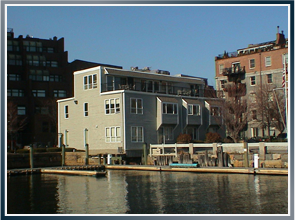What Happens When a Maritime Worker is Injured On Land?
 Maritime workers are not just limited to working on vessels at sea. They are also responsible for building, unloading and guiding ships. Types of land-based maritime workers can include:
Maritime workers are not just limited to working on vessels at sea. They are also responsible for building, unloading and guiding ships. Types of land-based maritime workers can include:
- Longshoremen
- Dock workers
- Ship builders
- Harbor workers
- Stevedores
When a maritime worker who doesn’t work on the water sustains an injury, there may be a moment of panic when they realize they are not protected under the Jones Act, which only applies to those injured at sea. However, maritime workers operating on land are not without protection just because they aren’t on a ship.
What is the Longshore Act?
The Federal Longshore and Harbor Workers’ Compensation Act, also known as the Longshore Act, was created for maritime workers who are not crewmembers on a vessel and have sustained an injury. Under the Longshore Act, injured maritime workers are covered on both U.S. navigable waters and the connecting waterfront areas, which includes:
- Docks
- Marine terminals
- Marinas
- Piers
- Building ways
- Marine railways
The Longshore Act provides lost wages, payment for medical treatment, any medical equipment needed and rehabilitation therapy. Additionally, the act provides damages for any aggravation of previous conditions, amputated limbs and death benefits for families.
Like workers’ compensation for non-maritime occupations, injured maritime workers can pursue third-party claims, even if they are covered by the Longshore Act. In some instances, it is possible the compensation from a third-party claim can actually exceed the benefits obtained from the Longshore Act.
The catch is that any injured maritime worker has to give notice to both his or her employer and the Department of Labor within 30 days. After that, a claim has to be filed within one year of the injury in order to receive compensation and benefits under the Longshore Act. Family members of deceased maritime workers can also file claims under the Longshore Act. If you’re a maritime worker injured on land, your best bet is to contact a maritime attorney to handle your claim and ensure that you don’t miss out on the benefits you’re entitled to.
Latti Associates LLC is a maritime law firm that fights for injured maritime workers.